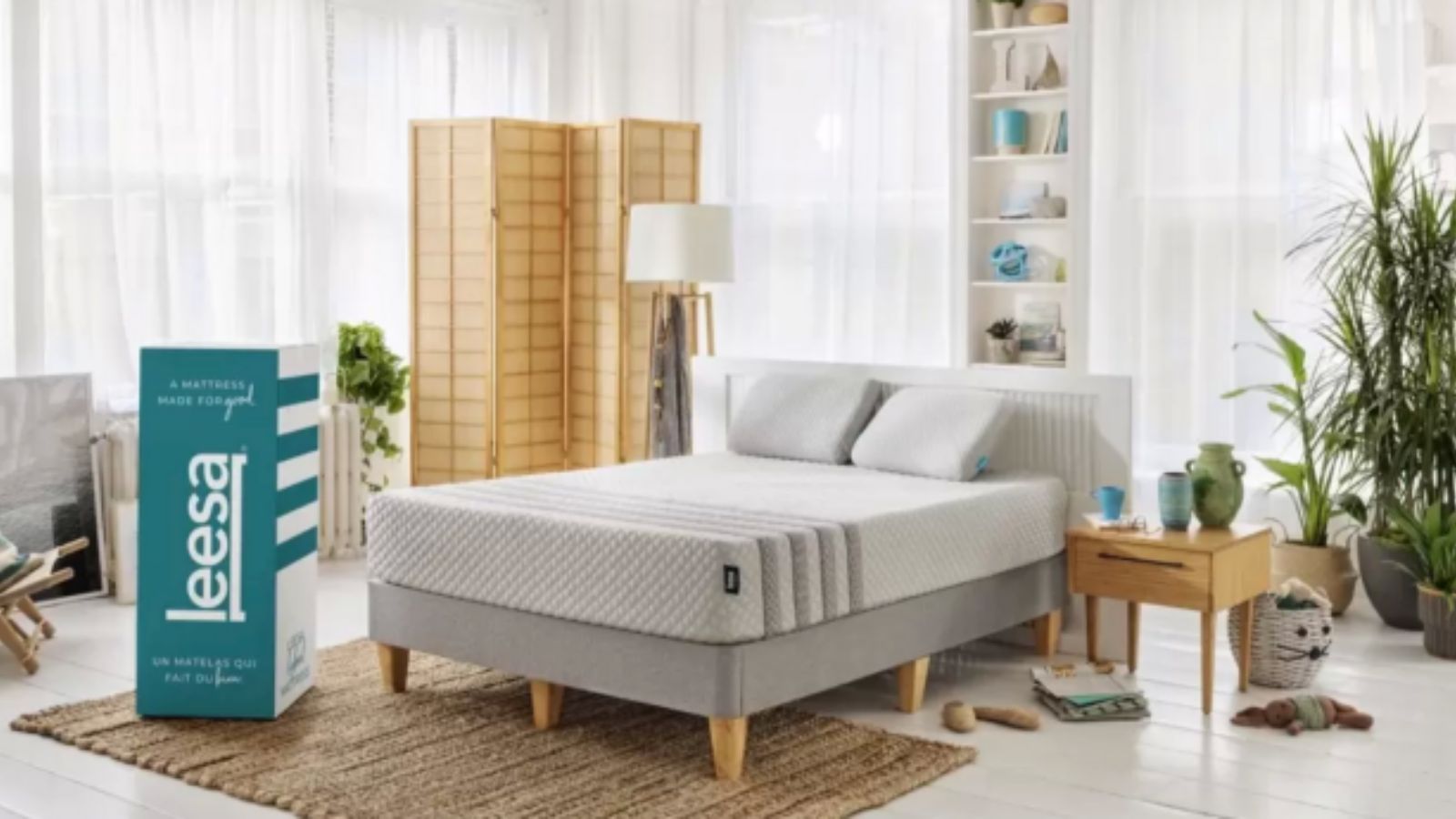
I like to think of a mattress as an investment. You're spending hundreds, if not thousands, of dollars to find a bed you want to sleep on for the next 10 years. That's why I always recommend that customers test a bed before you buy it, so that you know exactly what you're in for.
If you want to take stock of your options, you should head to a mattress showroom and learn how to test a mattress in-store. That way, you can sample multiple beds from the same brand or compare mattresses across the market. If you can't find a showroom near you, you could always take advantage of mattress sleep trials and learn how to test a mattress at home.
With a little forethought, and some expert guidance, it should be easy to find the best mattress within your budget. To get you started, I asked the founders of Brooklyn Bedding and Bear Mattress, as well as the sleep expert at SweetNight, to share their top tips for testing mattresses at home or in-store.
How to test a mattress – tips and tricks
As H&G's resident sleep writer, I couldn't pass up the opportunity to play mattress matchmaker. I've listed a few of my favorite mattresses from specialist sleep stores with public showrooms and extra-long sleep trials to help you decide which mattress you should buy.
How to test a mattress in-store
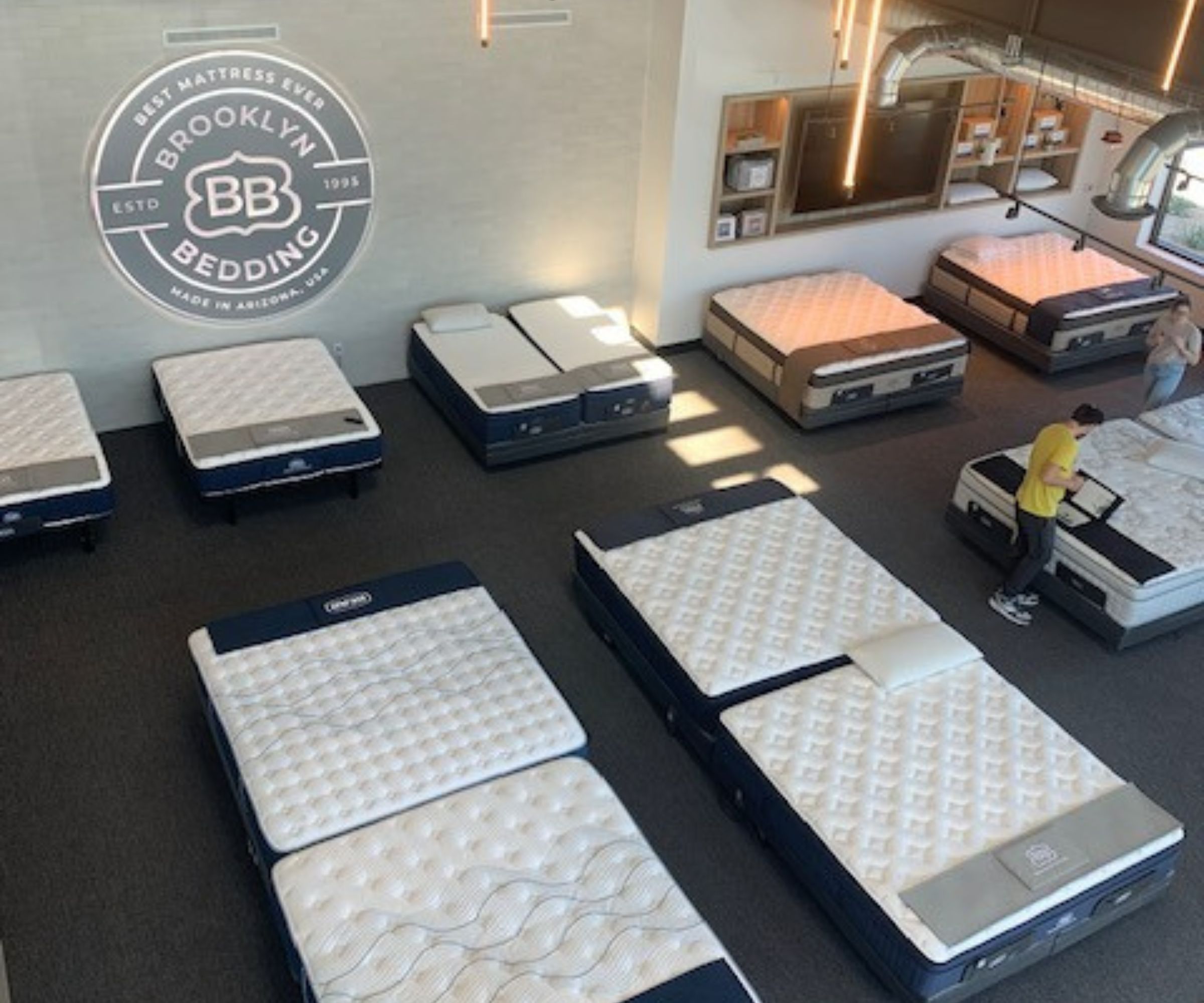
A mattress showroom is the best place to compare and contrast beds across brands. I find that you get a much better sense of a bed when you can see it and feel it in person than you do from slogans and pictures printed in a product listing.
Last week, I flew to Glendale, Arizona, to visit the 3Z Brands mattress showrooms. In six hours, I sampled more than 40 beds from some of the biggest names in sleep, including Helix; Leesa; Nolah; Birch; Brooklyn Bedding; and Bear. I had to figure out ways to standardize my tests across so many mattresses in so little time.
First, I reminded myself how we test mattresses here at H&G. For the sake of fair comparison, we assess each mattress against the same criteria: comfort; support; breathability and cooling; motion isolation; edge support; capacity to bear weight; and sustainability. If you can keep these criteria in mind, then you're less likely to be swayed by a brand name or a deep discount.
Whenever I test a mattress in person, I try to go in with an open mind. I won't read reviews from other publications or pay too much attention to marketing jargon: I'll just trust my instincts. If you're testing a mattress for the first time, then your best point of reference is the bed you're already sleeping on. Consider the pros and cons of your old mattress and work out which criteria you want to prioritize. If you're a hot sleeper, you should look for the best cooling mattress. If you sleep on your stomach, you could consider the best firm mattress for enhanced support.
According to Scott Paladini, the founder of Bear Mattress and Head of Brand at 3Z, the best way to test a mattress is to lie on it and see how you feel. When he stops by the Bear Mattress showroom, Scott encourages customers to slip off their shoes and settle into a mattress for at least a few minutes. You could even bring the best pillow to replicate your at-home sleep experience.
Often, Scott finds that customers feel too awkward to get comfy, so they just sit on the edge of the bed or lean into the mattress but keep their feet firmly on the floor. Scott laughs: 'I didn't build a chair!' If you don't allow yourself to relax into a bed and let it bear your weight and keep you cool, then you won't get the best out of your showroom experience.
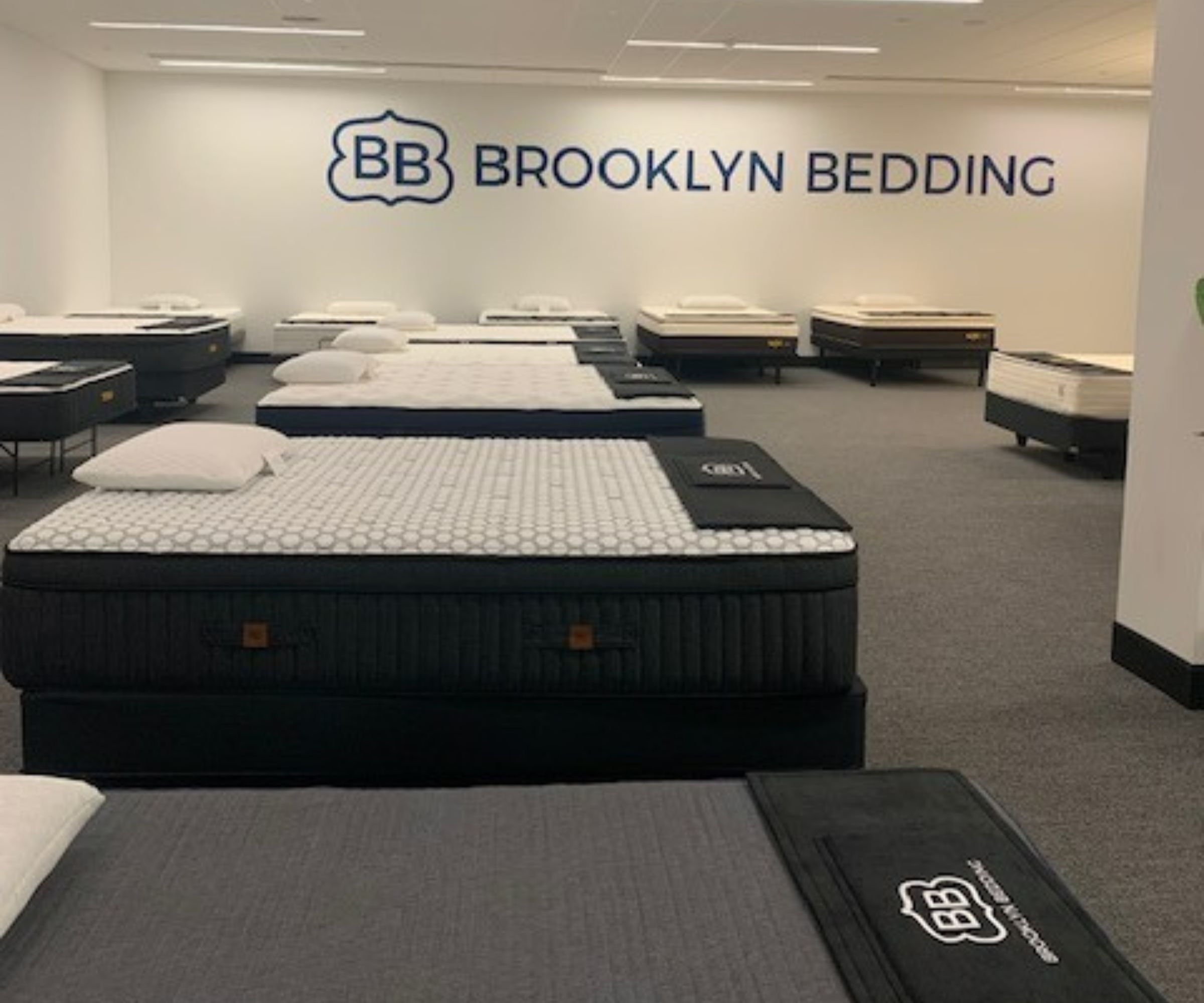
One of the best things about in-person mattress shopping is that you can always get a second opinion. Any store assistant worth their salt will be able to tell you everything you need to know about a mattress, from how it's made to what it costs.
Before he founded Brooklyn Bedding, John Merwin worked as a mattress liquidator. Sometimes, when the store got quiet, he'd pick a bed and take a nap, only waking up when a customer walked in. John swears that every single time he was caught sleeping on the job, he ended up selling that mattress. Rested and rejuvenated, he was living proof of the comfort and support of that particular bed.
If you're mattress shopping in-store, you might as well ask the showroom assistant all your burning questions. That way, you'll learn all the mattress buying rules to follow and the major mattress mistakes to avoid.
The best and worst thing about shopping for a mattress in a showroom is the sheer number of options. The more mattresses you test, the harder it becomes to distinguish between models, and the easier it is to feel overwhelmed. To help narrow the search, I've rounded up a few of my favorite mattresses from specialist sleep stores with showrooms up and down the country.
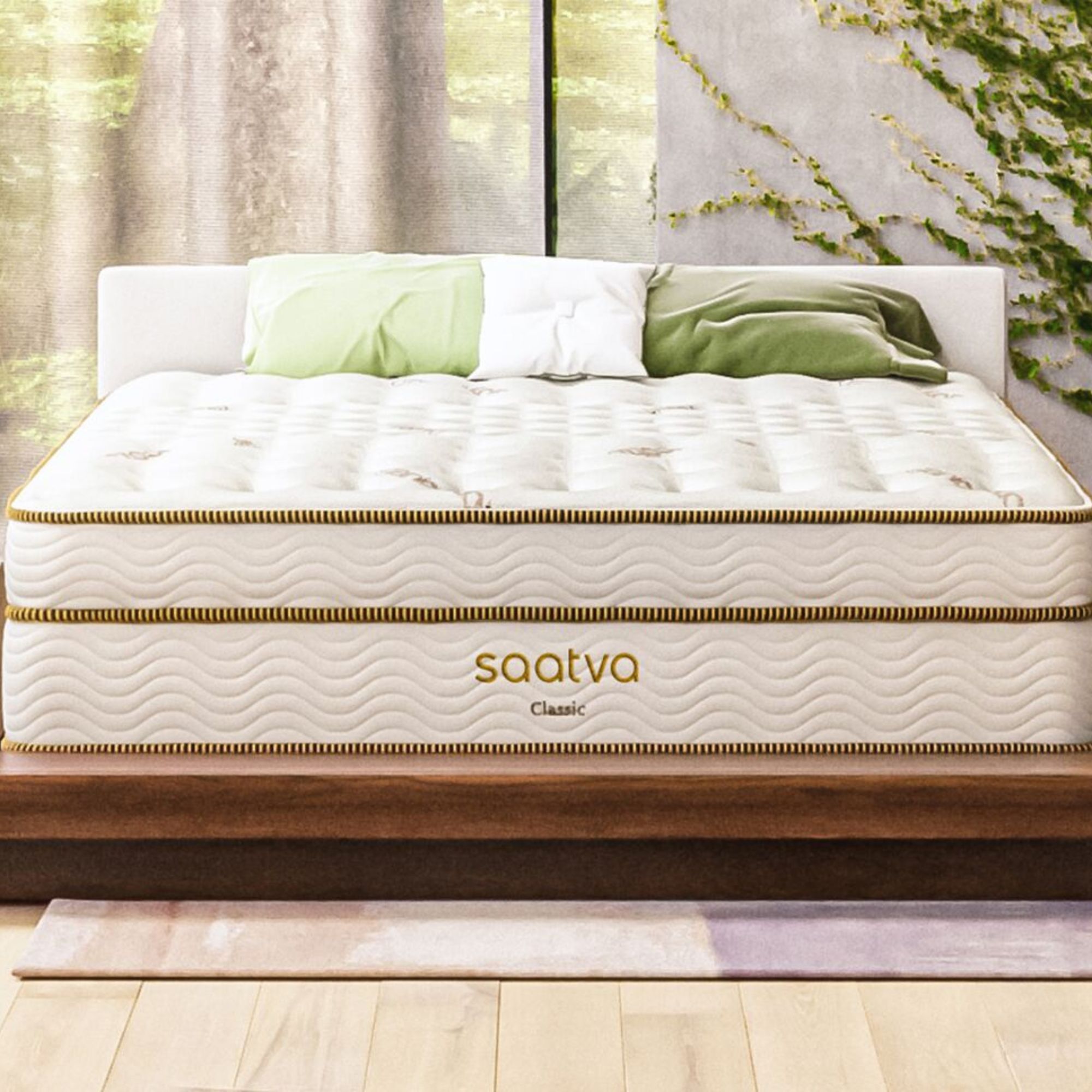
Our expert tester, Jaclyn, agreed to sleep on the Saatva Classic Mattress for a month. Four years later, she's still sleeping on it. This innerspring mattress is soft enough to suit back and side sleepers, yet sufficiently supportive for stomach sleepers.
You can find more detail in our Saatva Classic Mattress review.
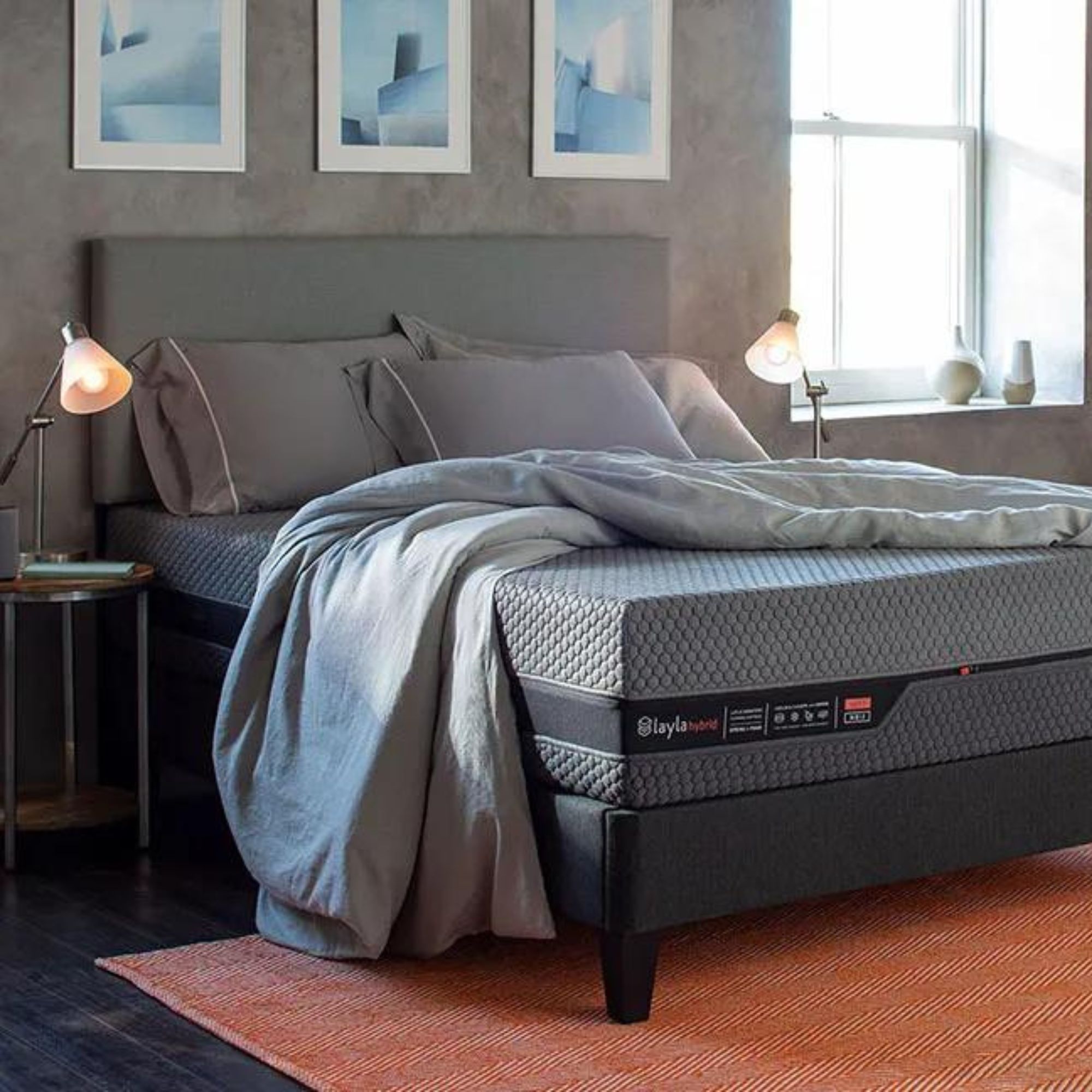
This hybrid mattress boasts excellent motion isolation and ultra-low heat retention. The Layla Hybrid Mattress is just the thing for hot sleepers and anyone who shares a bed, though it might be a little soft for stomach sleepers.
You can find more detail in our Layla Hybrid Mattress review.

This mattress has made its way onto almost every one of my bedroom buying guides, and with good reason. The Tempur-Pedic ProAdapt Mattress offers first-class pressure-relief and motion isolation. Sure, it's expensive, but you could get it for less in the mattress sales.
You can find more detail in our Tempur-Pedic ProAdapt Medium Hybrid Mattress review.
How to test a mattress at home

If you can't find a showroom near you, or you'd rather test a bed in the comfort of your own home, you could always order the best box mattress and get it delivered to your door. All you need to do is lift the mattress onto your bed frame or box spring, unwrap it, and wait for the bed to inflate, while any unpleasant mattress off-gassing odors dissipate. The whole process should only take a day or two.
The whole point of a mattress sleep trial is that you get to test a bed through several seasons and monitor its performance over months, rather than minutes. If, at the end of the sleep trial, you're still not sold on the mattress, you should be able to return it to the sender, though I suggest you double-check your mattress warranty.
The longer the sleep trial, the more data you can collect, and the more informed your eventual decision will be. Some of the bigger brands offer 365-night sleep trials, so that you can spend a whole year testing your mattress. The shortest trial I've seen runs for seven nights, which is insufficient time to test, though 100 night is standard.
Before you begin, ask yourself what would make the best mattress for you. Sensitive sleepers should consider a hypoallergenic mattress, while sustainable shoppers could look for the best organic mattress. Whatever mattress type you choose, comfort is non-negotiable: 'Your weight and sleep position preference significantly affect how the comfort layer, transition layer, and support core feel when you sleep. This is why you need to ask yourself: are you actually comfortable?' says Lisa Ren, in-house sleep expert and Deputy Director of Research & Development at SweetNight.
While it might take a few weeks to get used to a new mattress, you shouldn't have to sacrifice your sleep to break in a new bed. 'If, during the trial, your mattress is not comfortable, or the features do not meet your needs, return it,' says Lisa. 'There's no point in keeping a mattress that will cause you long-term problems. Sleep is supposed to be restorative, and you need a mattress that meets your needs'.
When you test a mattress at home, you can settle in for a long sleep without worrying about anyone else in the showroom. If you like, you can conduct some more scientific tests, too. Here at H&G, we use a glass of water to test motion isolation. Simply set the glass in the middle of the mattress and apply pressure around it: the more the glass moves, and the more water spills, the worse the motion isolation. This is an especially important test for light sleepers or anyone who shares a bed with a pet or partner who might wake you up in the night.
To assess weight bearing capacity, you could take a dumbbell and place it in the center of the bed. Measure how far the weight sinks into the mattress, and how quickly the surface springs back into shape once the weight is removed. Even the best memory foam mattress might bear an indent for a few minutes, while a hybrid mattress should bounce back in seconds.
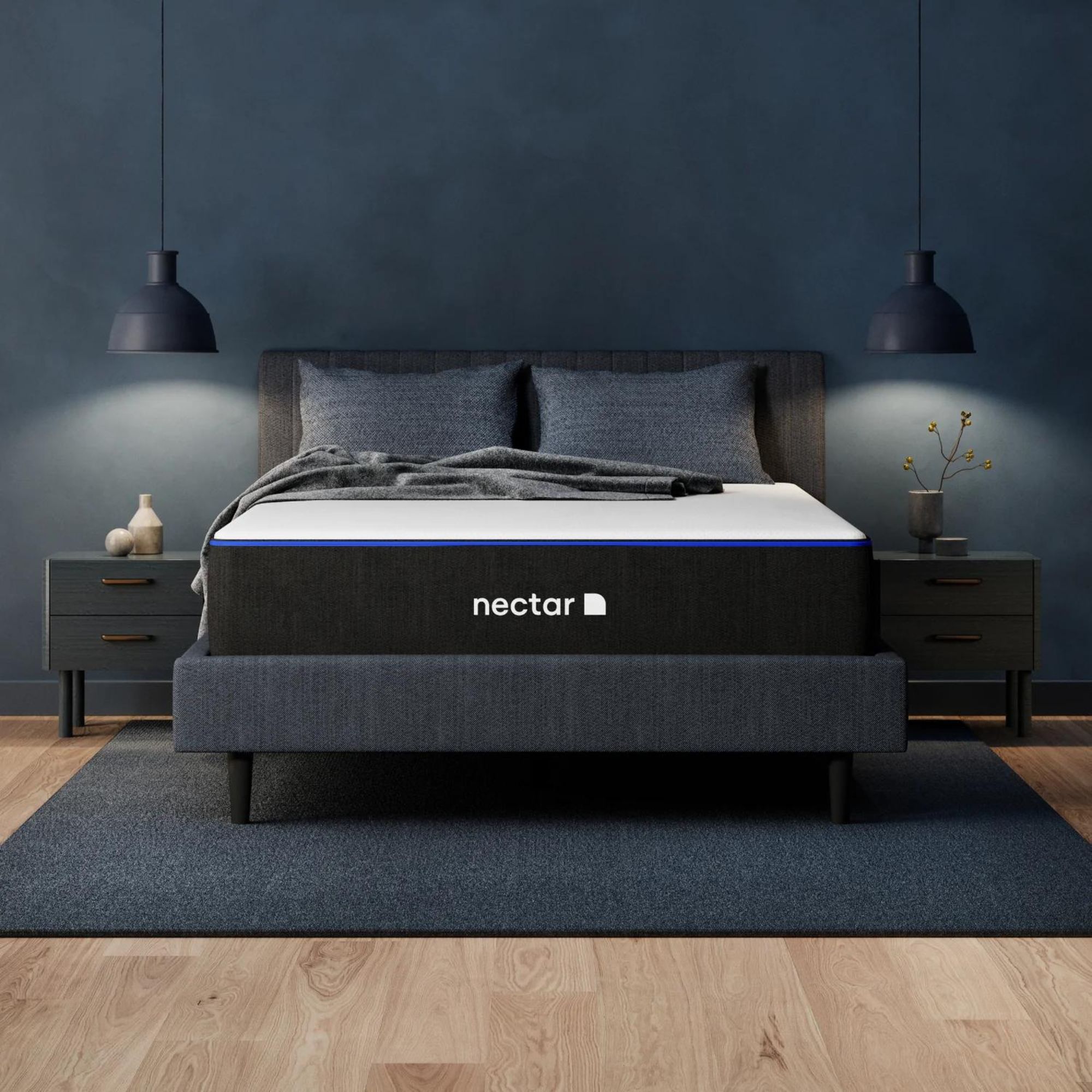
Our expert tester, Casey, swears by the Nectar Memory Foam Mattress. All that thick foam works to bear weight, relieve pressure, and alleviate pain. According to Casey, this is as close as you'll get to a weightless sleep experience.
You can find more detail in our Nectar Memory Foam Mattress review.
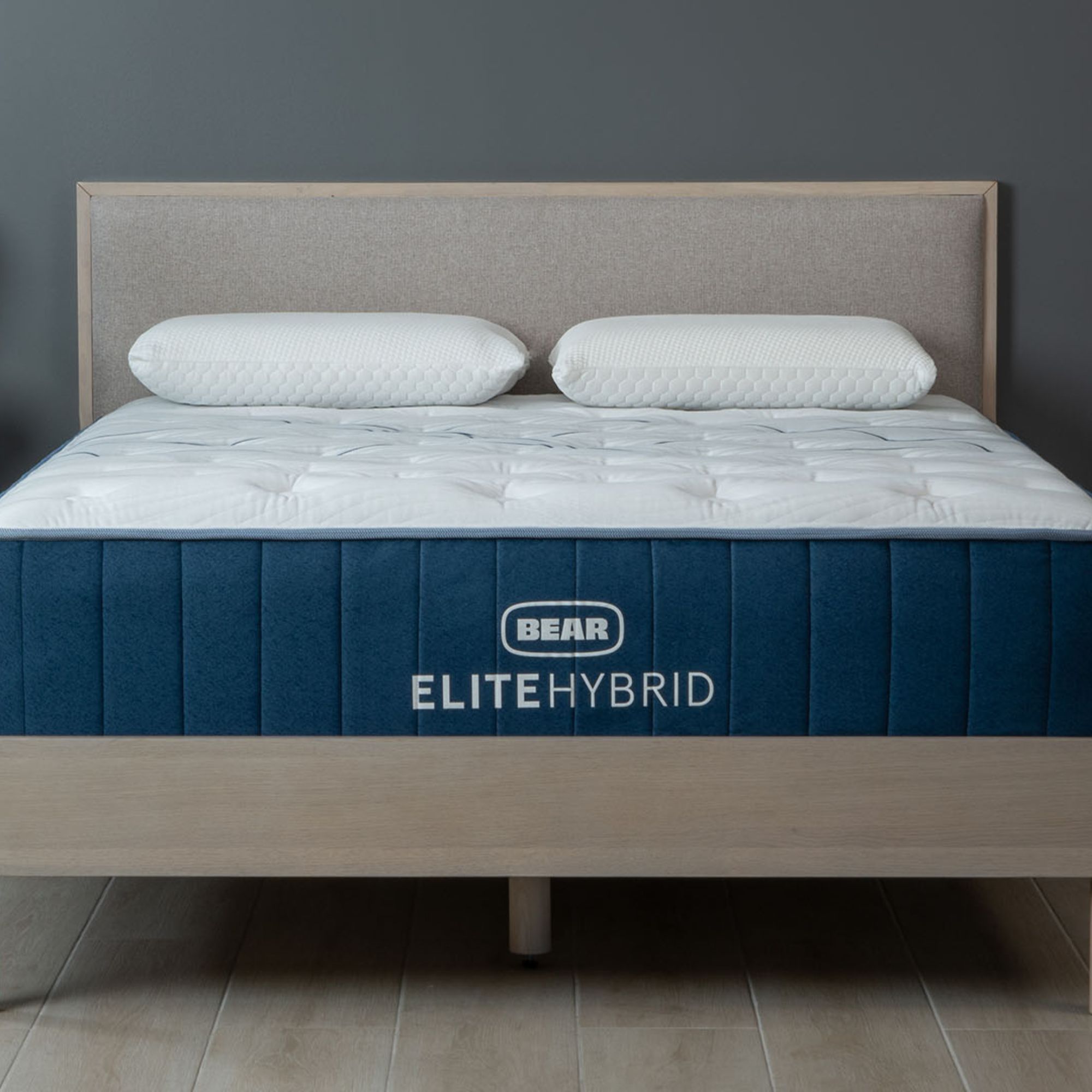
This 14-inch mattress is lined with stainless steel springs, arranged in five zones for targeted support, and topped with a thick layer of plush foam. It's hard to believe that such a big bed is shipped in such a little box for convenient delivery, but it is.
You can find more detail in our Bear Elite Hybrid Mattress review.
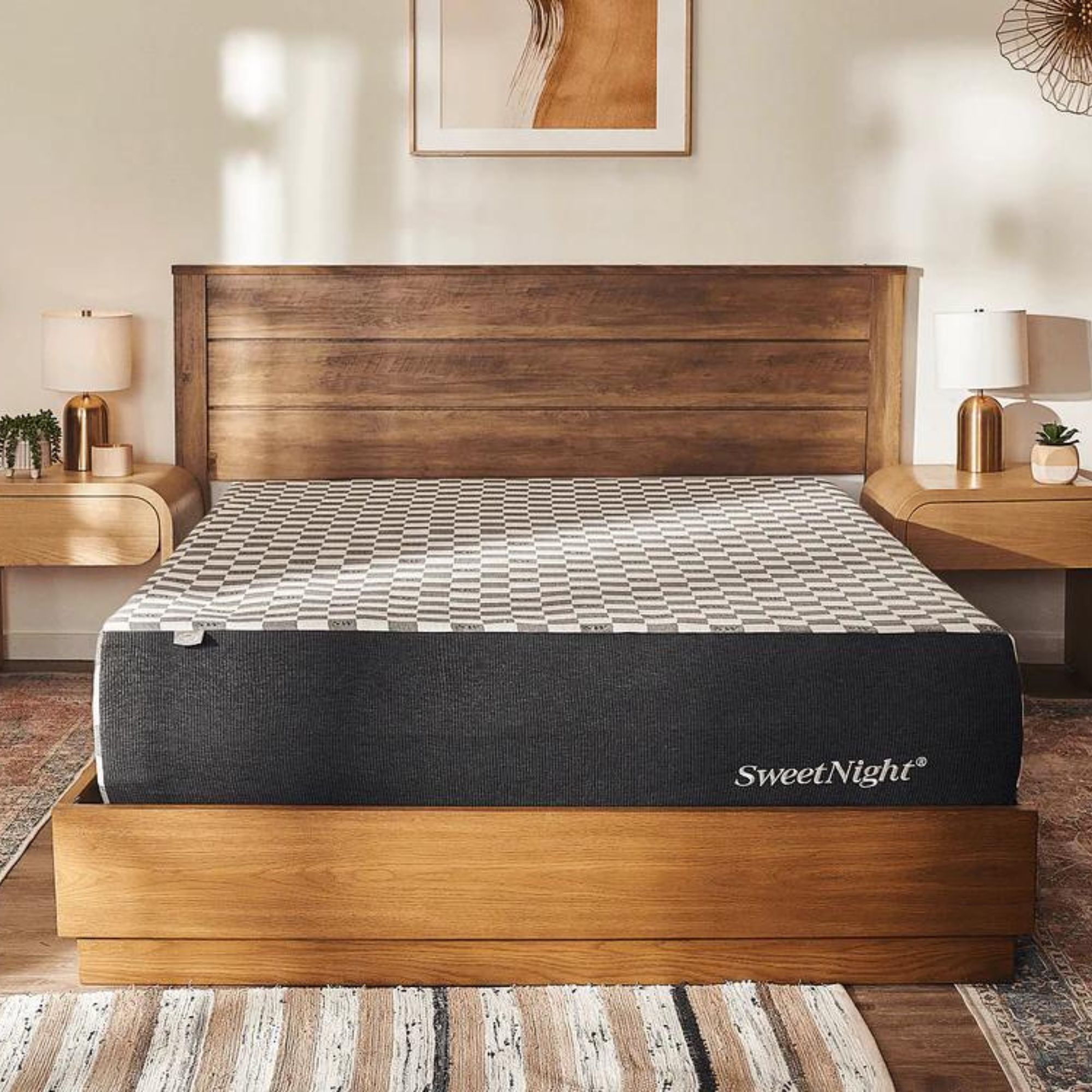
This flippable mattress is more like four beds in one, with softer and firmer sides to suit all sorts of sleep positions. Even if you roll to the other side of the bed in the night, the edge support is fantastic, and you should still sleep comfortably.
You can find more detail in our SweetNight Prime Memory Foam Mattress review.
Mattress testing FAQs
Where can I test a mattress?
Most of the major mattress brands have showrooms across the country, so that potential customers can try before they buy. Saatva, Purple, and Nectar have viewing rooms on the East and West Coast. Last week, I flew to Glendale, Arizona, to visit the 3Z Brands showroom, which hosts beds from Brooklyn Bedding, Helix, Nolah, Leesa, Bear, and Birch. You could always test a mattress at Mattress Firm, Macy's, or another major retailer across the US.
If you can't find a showroom near you, or you'd prefer to test a mattress over weeks or months, you could always take advantage of mattress sleep trials and order a bed to your own home. When you opt for white glove delivery, you'll get a dedicated driver to deliver your mattress, set it up in your bedroom, and remove your old mattress for safe disposal.
How long should you test a mattress for?
Give it a few weeks before you make up your mind about a mattress. I test beds for a living and I still find it takes a while to get used to a new mattress. If your first impression of a mattress isn't fantastic, it pays to persevere. Even the best box mattress needs a few days to inflate, which is about the same time as it takes for that unpleasant mattress off-gassing smell to dissipate. If you're testing beds in person, I recommend lying on each mattress in your preferred sleep position for around 15 minutes to get a sense of the fit and feel.
Final thoughts
Once you commit to a mattress, it's important to take good care of it. I recommend investing in the best mattress protector to safeguard against sweat and stains.
If you know you need a new mattress, but you're not quite sure where to start, then you're in luck: our expert guide can show you how to choose a mattress that meets your needs and comes in under budget.







